For most of us, our desires for healthy and youthful looking skin range only increase with age. Skin ageing usually appears from the third decade of life and lines, wrinkles and even some skin sagging can appear.
This ageing process is a result of both intrinsic and environmental factors. Genetics and hormonal changes (peri and post-menopausal periods in women) as well as UV radiation and pollutive damage can all play their part in skin degradation.
Collagen and elastin fibres decrease with age and the dermis declines in thickness, leading to a compromised skin resilience.
The skin can also succumb to damage following specific skin concerns, surgery and trauma, such as post-acne scarring and surgical scars, leaving us with feelings of self-consciousness, especially if these scars are in places that are very visible to others.
Nowadays, rather than undergoing invasive surgery, many of us would prefer a low invasive, minimal downtime treatment that we can have within a short time frame, and without a general anaesthetic.
From his clinics in London and the Midlands, Dr Dan Dhunna offers his patients a wealth of expertise with the use of injectable procedures.
Not to take on every new treatment that comes on the market, Dr Dan Dhunna is exceptionally particular about the procedures he offers and will only recommend a treatment with a history of the utmost safety and exceptional efficacy for his patients.
One such treatment that Dr Dan Dhunna is now offering from all of his clinics, which has been proven to assist the skin to internally heal and regenerate from within, is the use of injectable polynucleotides (skin bio-revitalisation).
Polynucleotides have long been recognised as effective, supportive therapy for wound healing. They are a type of biomolecule, made up of long-chain nucleotides (the building blocks of DNA and RNA) which have been ethically extracted from salmon or trout sperm.
They are sterilised and purified before being injected into various areas of the skin on the face and the body, for skin hydration, restoration, wound healing and repair.
Salmon and trout sperm contain Protamine Sulphate, a protein with a high arginine content. Arginine has an extremely restorative effect on the skin. Polynucleotides which have been extracted from fish are highly bio-compatible for use in humans, and offer very little by means of immunological side effects.
Polynucleotides attract water molecules, thus assisting with the rehydration of dehydrated, ageing skin. Polynucleotides can also utilise an anti-oxidant action, scavenging damaging hydroxyl free radicals, which can accumulate as a result of cell damage from factors such as stress, UV rays and pollution.
Once purified and injected into the dermal layers, polynucleotides initiate your body’s own natural fibroblast production and influence cellular growth and cell activity.
This can result in impressive anti-aging regenerative effects, improving skin quality making it healthier, thicker and giving it a more resilient epidermis, as well as a reducing inflammation and skin damage, such as acne scarring.

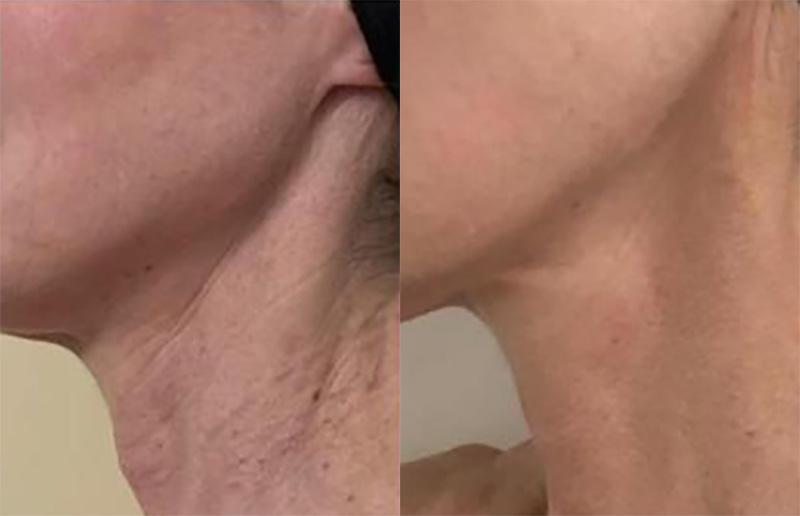
*Results are individual and may vary.
Organic polynucleotides stimulate the metabolic activity of cells within the skin, regenerating collagen production and increasing the rate of growth of fibroblasts.
They are able to do this by activating and revitalising ageing and damaged cells within the skin. They prime dermal fibroblasts to produce new matrix glycosaminoglycans, as well as new collagen and elastin fibres.
This action of regenerating fibroblasts within the skin, was found, in extensive tests to induce favourable and long lasting benefits of skin quality and texture in the mid-layers of the skin.
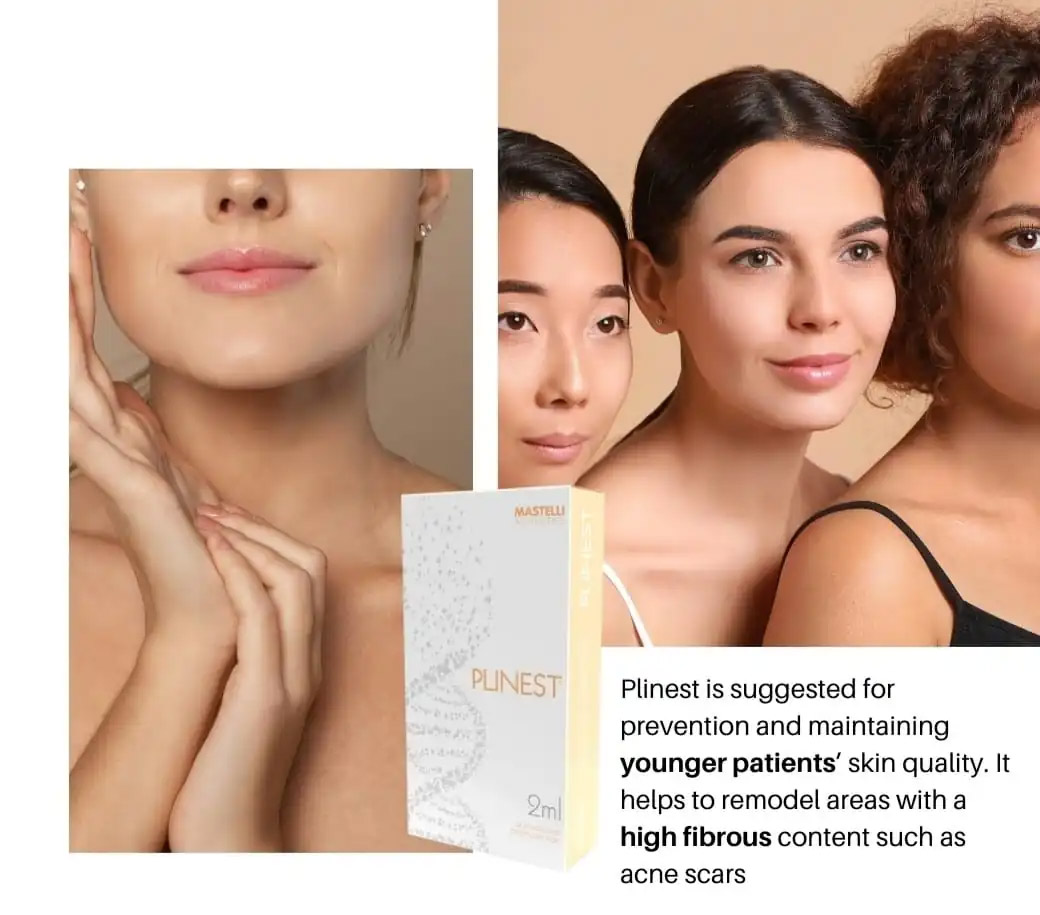

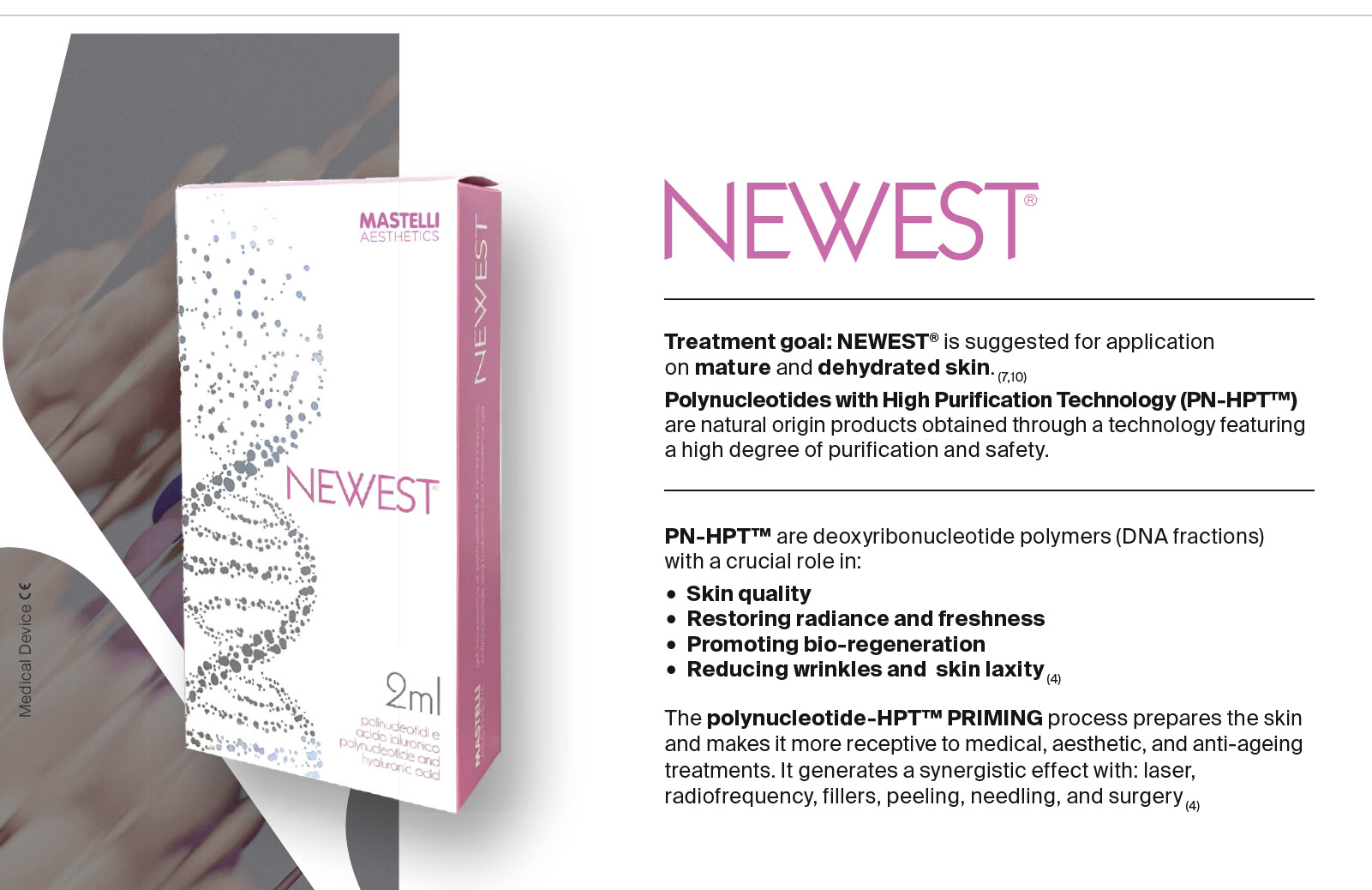
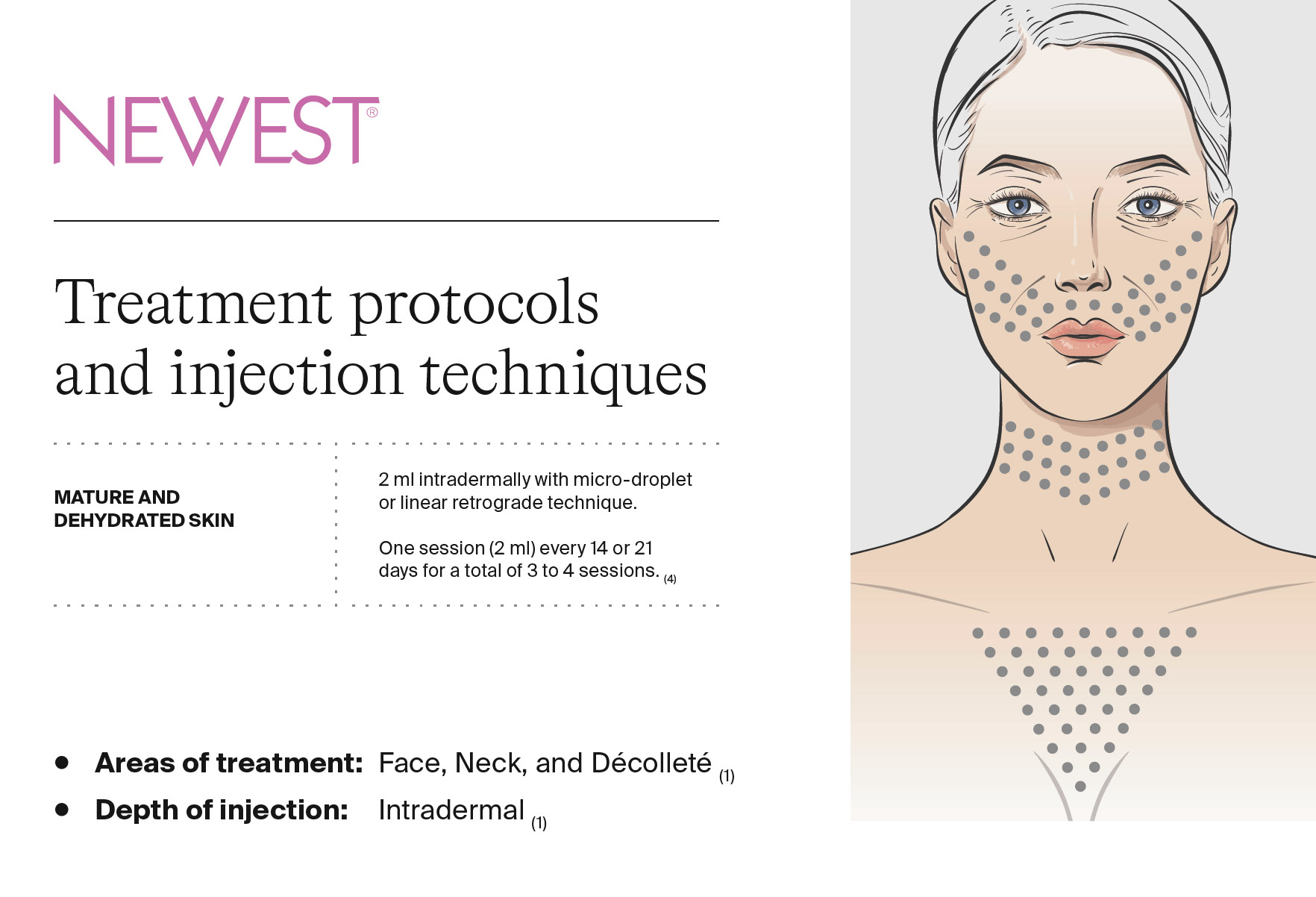
Dr Dan Dhunna is able to treat all areas of the face, including notoriously difficult areas such as around the lips and the eyes. Polynucleotides can also be used to treat the scalp, neck, décolleté, upper arms, hands, thighs and stomach areas for skin tightening, healing and restoration.
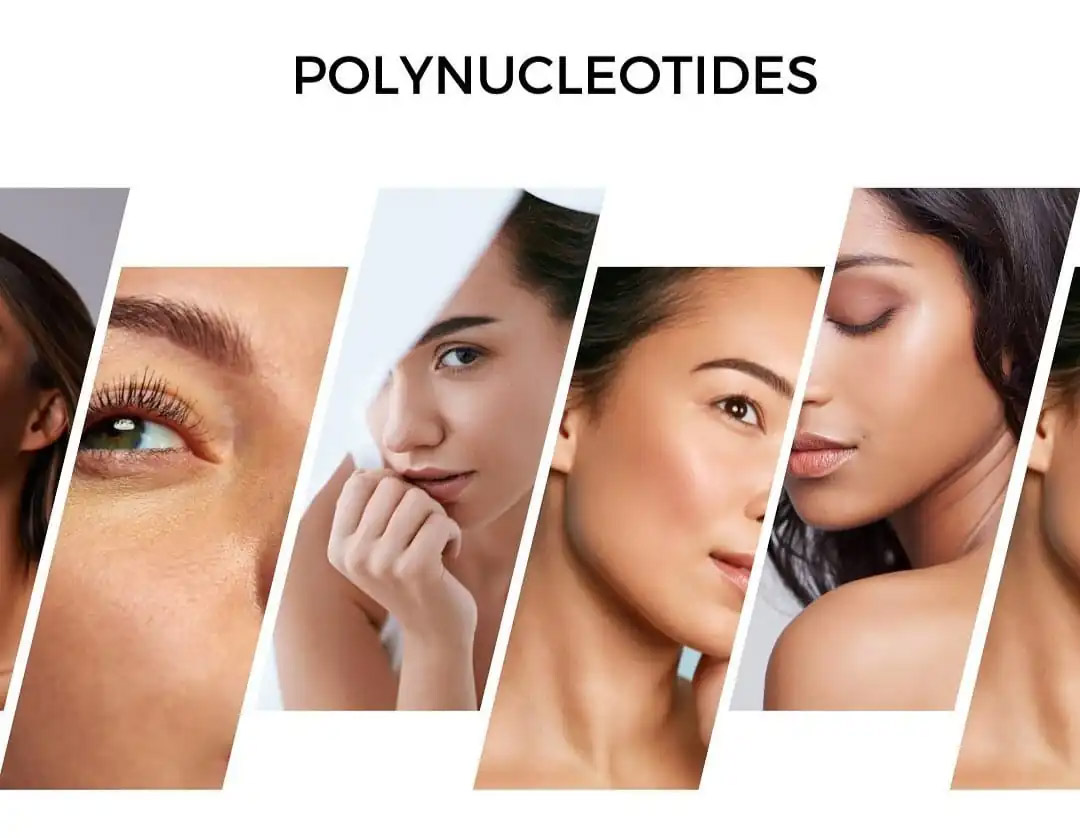
Polynucleotides are used to improve and restore skin elasticity, thickness, texture, hydration and overall skin health. Treatments can be administered for a variety of facial and bodily skin concerns.
Dr Dan Dhunna only uses the highest strength polynucleotides on the market such as Plenyhage® XL medium and Plenyhage® XL Strong, NEWEST and PLINEST brands due to their safety profile and history of efficacy. These are made in world leading laboratories in Italy. Each product has its own benefit and is suited to specific conditions.
Following an in-depth preliminary consultation, skin analysis and medical history check, Dr Dan Dhunna will explain why he recommends a specific product for your individual requirements and how it will benefit you as an individual. Once you are both satisfied that polynucleotides could benefit you, you can book your initial treatment session.
Polynucleotides are the new generation in skin rejuvenation. Unlike traditional dermal fillers which act to support the skin matrix ‘physically’ using a hyaluronic acid gel, polynucleotides in the form of an injectable serum work on a more cellular level to regenerate skin from the inside out by firstly act as a wound healing agent (scar tissue / skin imperfections) and then, using their antioxidant properties, boosting cell renewal, reducing inflammation and restoring a more youthful volume to the skin; as well as continued hydration and regeneration of the skin by fibroblastic renewal.
Unlike dermal fillers, polynucleotides do not absorb water so puffiness is unlikely. As a result polynucleotides can be used in areas where dermal fillers traditionally struggle such as around the mouth, the neck and the entire upper and lower eye lid areas! However, where polynucleotides are unable to re-shape areas such as the nose and jawline, dermal fillers act effectively to sculpt facial contours.
Therefore, polynucleotides can be utilised in conjunction with other injectable treatments such as dermal fillers and BOTOX® for an ultra-holistic approach to skin rejuvenation and facial contouring. Something in which Dr Dan Dhunna is highly specialised.
Although there are no significant clinical side effects from polynucleotides, which would lead to a period of recovery at home (clinical downtime), as with any treatment using a needle or cannula, you can expect some cosmetic downtime afterwards. Slight bruising, swelling and tenderness at the site of injection can be occur. This is quite normal and the use of ice, vitamin K oxide creams and arnica tablets can be helpful.
Dr Dan Dhunna will advise on any aftercare which needs to be followed, after your procedure, such as avoiding hot saunas, and steam baths.
Polynucleotides have been developed over 40 years of scientific research and development, and have been used in the medical field for over 35 years with no associated adverse reactions. However because they are derived from fish, their use is not recommended in anyone with a fish allergy.
This will all depend on your individual skin concerns, whether they are on the face or body and how advanced the damage to the skin is. However, in most cases, 3 treatments will be required, 2 to 4 weeks apart. You may then decide to have single treatments every 6 to 9 months apart to maintain your results. Your treatment plan will be discussed in your initial consultation with Dr Dan Dhunna.
Depending on the area being treated, a treatment using injectable polynucleotides should take about 30 minutes.
As a numbing cream is used and the needles used to inject the polynucleotide serum are very fine, you should hardly notice the injections being administered.
Dr. Dan Dhunna provides polynucleotide bio-revitalization treatments from his clinics located in the Midlands and on Harley Street in London. With a focus on rejuvenating and enhancing the skin’s appearance, Dr. Dhunna utilises cutting-edge injectable polynucleotides to stimulate collagen production, improve skin texture, and promote overall skin health.
